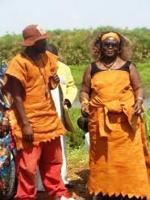St Pauls University Kenya
St Pauls University Kenya, Former Divinity School, St Paul’s United Theological College, Accommodation at St. Paul's University, programmes and Admmission forms, Courses offered at St. Paul's University and all you need to study at this university in Kenya
Programs and Courses Offered at St Paul University Kenya
Postgraduate Courses
- Masters in Business Administration (MBA) - Areas of Specialization: Strategic Leadership and Management, Marketing, Micro Finance Management, Accounting, Banking, Financial Management, Human Resource
- Masters in Development Studies (MDS) - Areas of Specialization: Community Development, Children/Youth and Development, Theology and Development, Organizational Development, Peace Building, Conflict Resolution and Development
- Masters in Theology (MTh) - Areas of Specialization: Systemstic Theology, Gender and Theology, History and Christianity, Counselling
- MA/PGD in Community Pastoral Care and HIV/AIDS
- MA/PGD in Christian - Muslim Relations
Undergraduate Programmes
- Bachelor of Business Administration and Management - Areas of Specialization: Marketing, Accounting, Business Administration, Management Science, Purchasing and Supplies Management, Human Resource Management, Banking, Finance
- Bachelor of Arts in Communication - Areas of Specialization: Publishing, Mass Communication, Public Relations, Development Communication
- Bachelor of Divinity - Covering Biblical Studies, Systematic Theology, History, Pastoral and Practical Studies
- Bachelor of Business and Information Technology (BBIT)
- Bachelor of Leadership and Management (BALM)
Diploma Courses
- Diploma in Business and Management
- Diploma in Marketing Management
- Diploma in Leadership
- Diploma in Banking
- Diploma in Logistics and Supplies
- Diploma in Anglican Studies
- Diploma in Gender, Theology, HIV/AIDS
- Diploma in Communicaation
- Diploma in Advertising
- Diploma in Public Relations
- Intake is in progress
Application Procedure
Application forms for the courses may be obtained from the Main Campus Limuru, Nairobi Campus at Church House or downloaded from website, www.stpaulslimuru.ac.ke
Duly completed forms should be returned to:
The Assistant Registrar
St. Paul's University
Private Bag-00217, Limuru
Telephone: 020-2020505/10
Mobile: 0728-669000, 0736-424440
Email: assistantregistrar@spu.ac.ke
A Brief History of St Pauls University Kenya
The origin of the University goes back to the early years of missionary work in East Africa.
In 1875 the Church Missionary Society (CMS) founded a settlement for freed slaves at Frere Town, near Mombasa.
In 1888, the Rev. E.A. Fitch began a Divinity class designed to offer some practical skills and Christian leadership training to these freed slaves.
The Divinity class offered training to six teacher-evangelists who were ordained deacons.
Thus began the training of Africans for the ordained ministry of the Christian Church.
On the 28th July 1903, the Rev. H.K. Binns laid the foundation stone of St. Paul’s Divinity School at Frere Town, Mombasa.
This stone can be seen on the front of the present Chapel at Limuru to where the original Divinity school was transferred in January 1930.
The Divinity School continued as an Anglican Institution until 1949 when the Presbyterian Church of East Africa and the Methodist Church in Kenya joined and brought in their ministerial candidates for training.
In 1954 the transitional union was accomplished when the three Churches formed a College Council to run the affairs of the College; and on the 1st January 1955, the CMS St. Paul’s Divinity School became St. Paul’s United Theological College.
In 1973 the Reformed Church of East Africa formally joined the other three Churches as the fourth Participating Partner.
On the 18th of March 1993, the National Council of Churches of Kenya in its corporate identity was admitted by the Governing Council as the fifth Participating Partner in the ownership of the College.
On September 14, 2007, the University was awarded a Charter to become St. Paul’s University.
The University is based upon the partnership of the four Participating Churches and the NCCK as a corporate body with the representation in the Governing Council being ACK 50%, PCEA 20%, MCK 10%, RCEA 10% and NCCK 10%.
Vision of St. Paul's University Former Divinity School
A University of academic excellence based on Christian principles producing graduates in various fields for global service.
Mission Of St. Paul's University Former Divinity School
To develop servant leaders by imparting knowledge, skills and values through creative methods of education, research and Christian spiritual formation.
Other Universities and Colleges in Kenya
University of Nairobi › |
Kabarak University Kenya › |
Strathmore University Kenya › |
Kiriri Women University › |
Kenya Methodist University › |
Pan Africa Christian University › |
Mount Kenya University › |
Travel to Kenya by Plane › |
Gretsa University Kenya › |
Great Lakes University of Kisumu › |
Presbyterian University of East Africa Kenya › |
Kca University Kenya › |
Africa International University Kenya › |
St Paul University Kenya › |
Kabianga University College
› |
Masinde Muliro University Kenya › |

Recent Articles
-
Garam Masala Appetizers ,How to Make Garam Masala,Kenya Cuisines
Sep 21, 14 03:38 PM
Garam Masala Appetizers are originally Indian food but of recent, many Kenyans use it. Therefore, on this site, we will guide you on how to make it easily. -
The Details of the Baruuli-Banyara People and their Culture in Uganda
Sep 03, 14 12:32 AM
The Baruuli-Banyala are a people of Central Uganda who generally live near the Nile River-Lake Kyoga basin. -
Guide to Nubi People and their Culture in Kenya and Uganda
Sep 03, 14 12:24 AM
The Nubians consist of seven non-Arab Muslim tribes which originated in the Nubia region, an area between Aswan in southern







New! Comments
Have your say about what you just read! Leave me a comment in the box below.